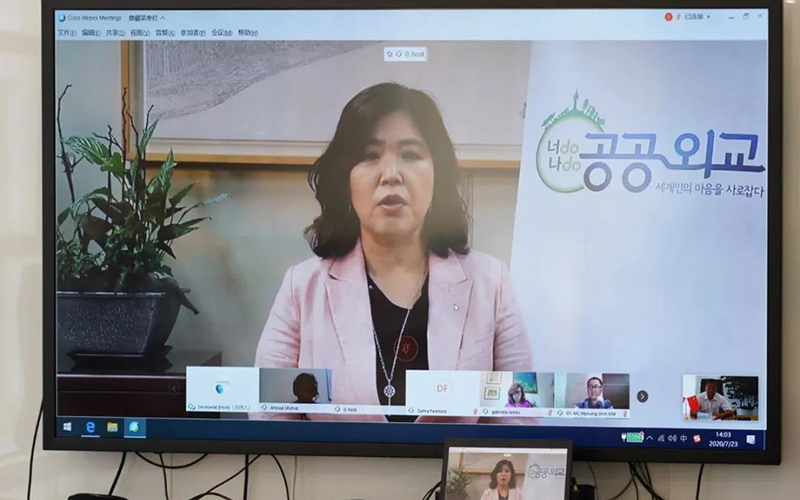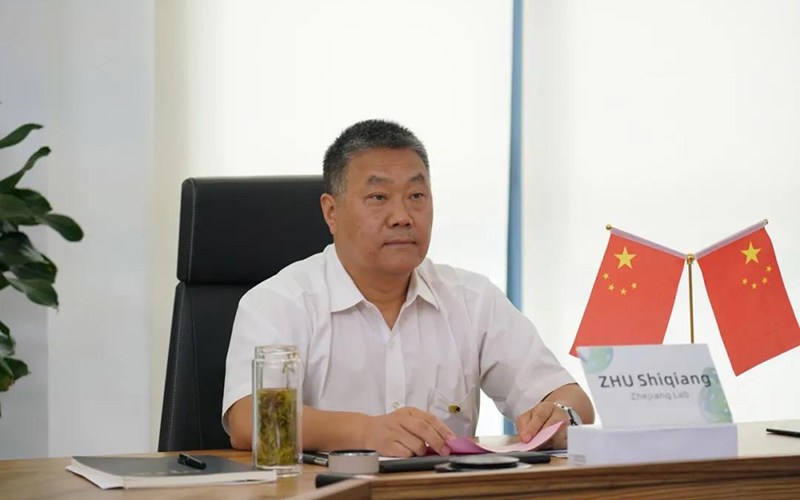




As an important driving force for a new tech and industrial revolution, artificial intelligence is profoundly changing the world. It has also drawn widespread attention worldwide to its ethical issues. In March 2020, An Ad Hoc Expert Group composed of 24 international experts appointed by UNESCO officially started the preparation of the draft of the world's first Recommendation on the Ethics of Artificial Intelligence.
From July 23 to 24, in order to promote inter-regional consultations, UNESCO initiated a regional consultation for the Asia-Pacific Region to discuss the draft text. The consultation engaged 100 representatives, including the UNESCO Assistant Director-General for Social and Human Sciences, the Director General for Public Diplomacy and Cultural Affairs at the Ministry of Foreign Affairs of the Republic of Korea, and relevant experts from different countries. Due to the outbreak of COVID-19, the consultation was held as a video conference.
At the invitation of the Ministry of Science and Technology of China, the Cyberspace Administration of China, and the China National Commission for UNESCO, Zhejiang Lab President Zhu Shiqiang attended the consultation as a representative of Chinese experts, expressing his views through a speech titled “Sharing China’s Experience, Building Global Consensus, and Developing Responsible Artificial Intelligence". He also offered specific suggestions on the draft text.
According to Zhu, the standard-setting of AI ethics should follow the two basic concepts of "Building a Community of Shared Future for Mankind" and "Enhancing Human Well-being". To understand the ethical issues of AI, we should fully consider the intelligent support and positive impact provided by AI technologies when we are solving common disasters in human society. The standard-setting of AI ethics is not intended to restrict the development of AI, but rather to promote sustainable economic, social, and ecological development through the advance of AI technologies, so as to build a community taking part in a shared future for mankind.
Zhu said that the basic attitude towards the development of AI should be "optimistic and cautious". "Optimistic" means that we should continue to vigorously develop AI technologies to bring more benefits in aspects such as livelihood, education, healthcare, and social security. "Cautious" means that the development of AI technologies should be safe and controllable. We should standardize the use of AI, prevent it from being abused, avoid its negative impacts and potential risks, and leverage multi-faceted policies, regulations, and scientific measures to ensure that AI always develop in the direction of benefiting mankind.
Zhu suggested that the draft of the Recommendation on the Ethics of AI should advocate a more universal value, which is not biased towards different economic strengths, technological foundations, and AI application status in different countries, making the standards more widely recognized and accepted in the future. He also suggested that we should strengthen mutual assistance and sharing among member countries, leading them to build a more effective mechanism of communication and coordination through continuous exploration. He believed that we should promote AI risk assessments and reviews, guiding and encouraging member countries to jointly conduct long-term, large-area, and multidisciplinary observations and research on the global development, social impact, and sustainable governance of AI technologies. In addition, he said we should pay more attention to the governance of AI technologies, so that AI ethical issues can be understood and solved fundamentally.
By far, Zhejiang Lab has established the Research Center for AI Social Experiments, which focuses on AI social governance experiments in areas such as disease prevention and control, urban management, elderly care, environmental treatment, and education. It is providing effective support for in-depth comprehensive research on the social impact of AI technologies.











